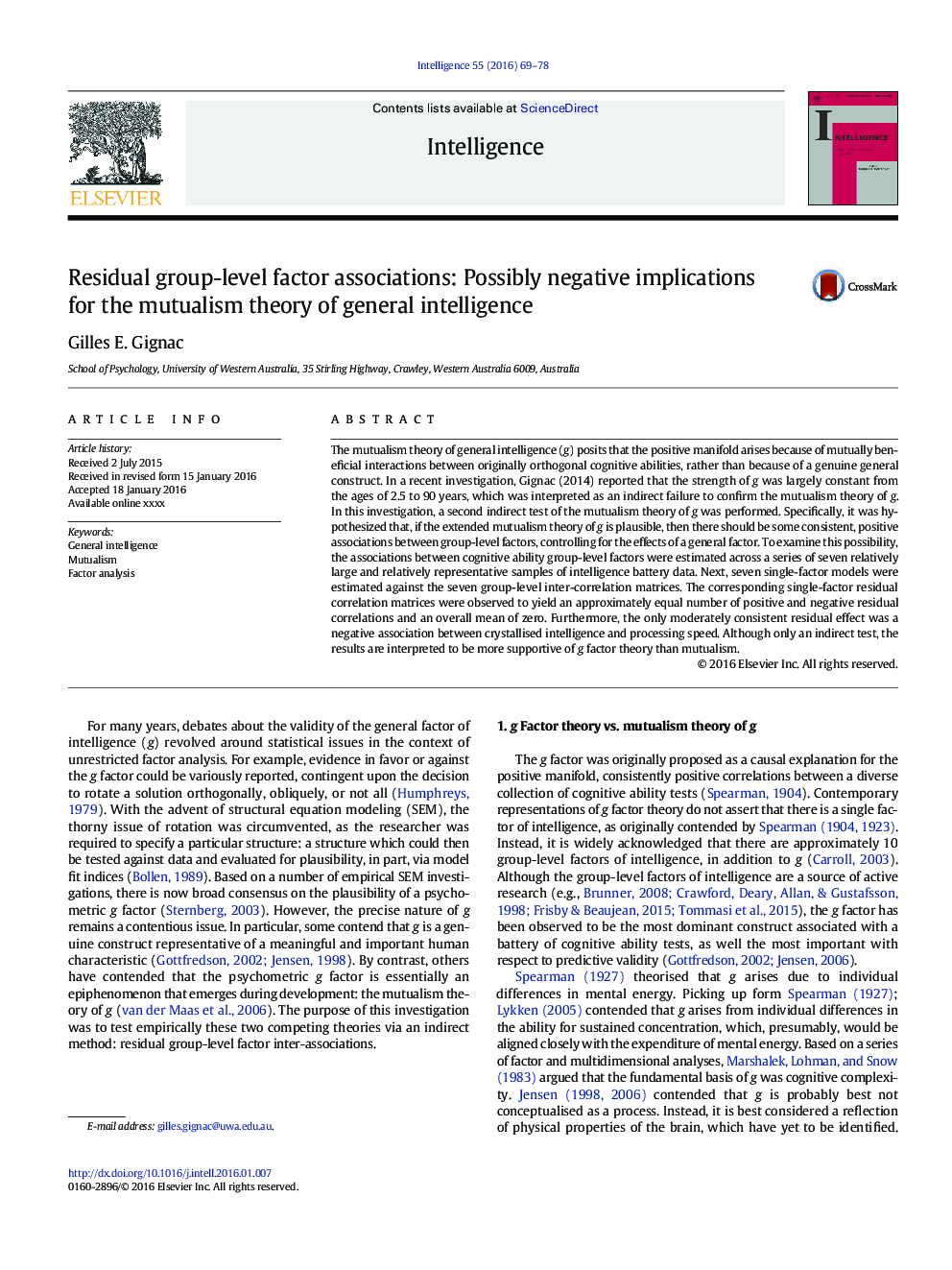| کد مقاله | کد نشریه | سال انتشار | مقاله انگلیسی | نسخه تمام متن |
|---|---|---|---|---|
| 7293394 | 1474261 | 2016 | 10 صفحه PDF | دانلود رایگان |
عنوان انگلیسی مقاله ISI
Residual group-level factor associations: Possibly negative implications for the mutualism theory of general intelligence
ترجمه فارسی عنوان
پیوندهای فاکتورهای گروهی باقیمانده: پیامهای منفی ممکن برای نظریه مشترک بین هوش عمومی
دانلود مقاله + سفارش ترجمه
دانلود مقاله ISI انگلیسی
رایگان برای ایرانیان
کلمات کلیدی
هوش عمومی همیاری، تجزیه و تحلیل فاکتور،
موضوعات مرتبط
علوم انسانی و اجتماعی
روانشناسی
روانشناسی تجربی و شناختی
چکیده انگلیسی
The mutualism theory of general intelligence (g) posits that the positive manifold arises because of mutually beneficial interactions between originally orthogonal cognitive abilities, rather than because of a genuine general construct. In a recent investigation, Gignac (2014) reported that the strength of g was largely constant from the ages of 2.5 to 90Â years, which was interpreted as an indirect failure to confirm the mutualism theory of g. In this investigation, a second indirect test of the mutualism theory of g was performed. Specifically, it was hypothesized that, if the extended mutualism theory of g is plausible, then there should be some consistent, positive associations between group-level factors, controlling for the effects of a general factor. To examine this possibility, the associations between cognitive ability group-level factors were estimated across a series of seven relatively large and relatively representative samples of intelligence battery data. Next, seven single-factor models were estimated against the seven group-level inter-correlation matrices. The corresponding single-factor residual correlation matrices were observed to yield an approximately equal number of positive and negative residual correlations and an overall mean of zero. Furthermore, the only moderately consistent residual effect was a negative association between crystallised intelligence and processing speed. Although only an indirect test, the results are interpreted to be more supportive of g factor theory than mutualism.
ناشر
Database: Elsevier - ScienceDirect (ساینس دایرکت)
Journal: Intelligence - Volume 55, MarchâApril 2016, Pages 69-78
Journal: Intelligence - Volume 55, MarchâApril 2016, Pages 69-78
نویسندگان
Gilles E. Gignac,
